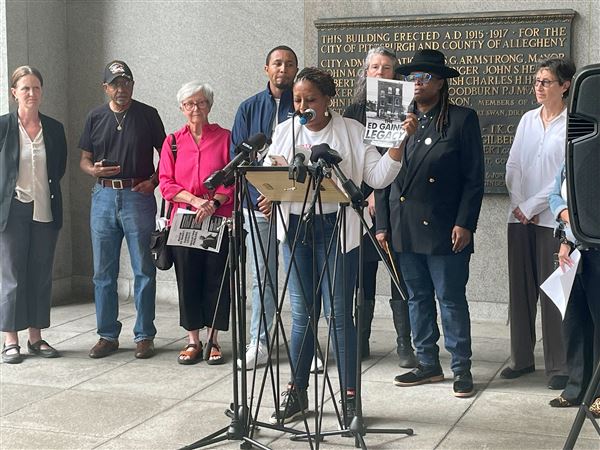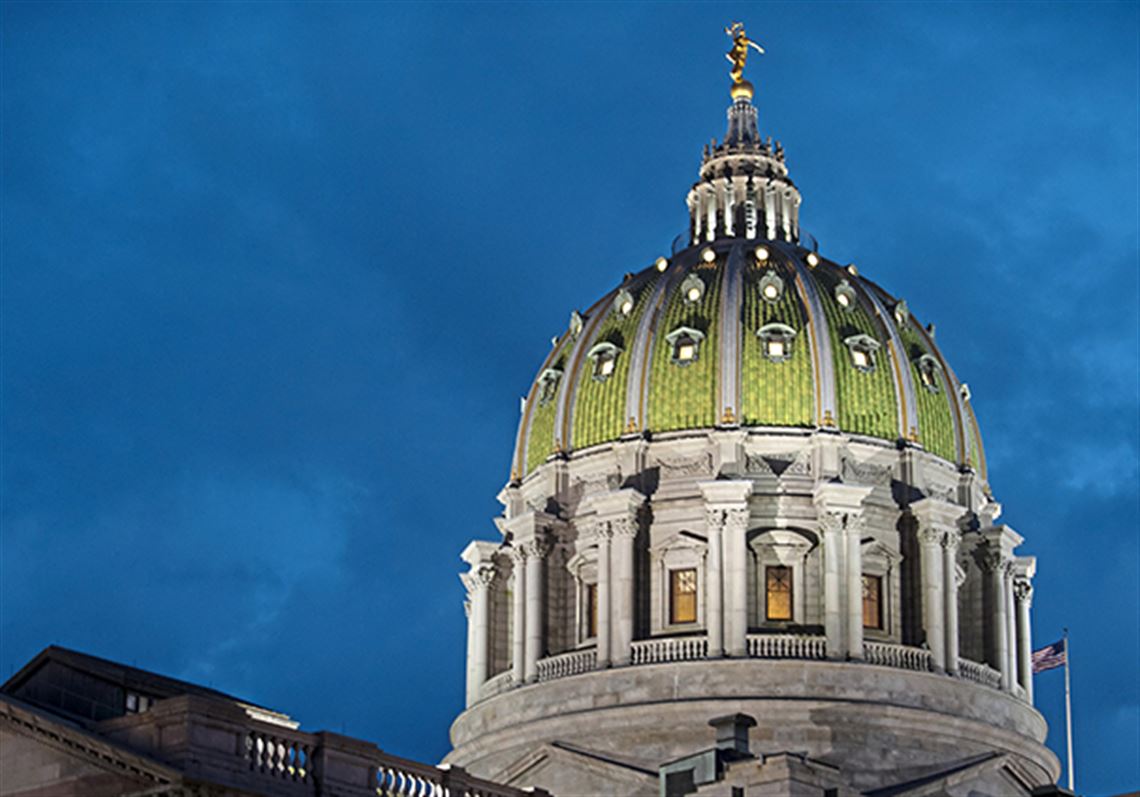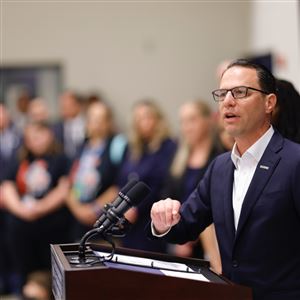HARRISBURG — Although a constitutional deadline will pass Sunday night without a state budget in place, optimism abounds that negotiators will soon reach a deal tying down thorny issues such as K-12 school funding, returning money to residents, and more public transit spending.
The optimism was evident when lawmakers left the Capitol late last week. It was rooted in positive reports emanating from closed-door budget negotiations. The fact that July 1 — the first day of the new fiscal year — would arrive without a state budget in place was mostly an afterthought.
“The product that we produce is more important than the timeframe in which we produce it,” said Rep. Jesse Topper, R-Bedford and the top Republican on the House Education Committee.
Another Republican, Rep. Russ Diamond, of Lebanon County, said “a few days doesn’t make much difference” and that lawmakers have learned “there is no downside to not meeting a constitutional deadline.”
Both chambers are scheduled to return to Harrisburg on Monday. At least some members hope to have a deal done and passed into law by the Fourth of July holiday on Thursday.
The key players are leaders of the Republicans who control the Senate, the Democrats who control the House, and the Democratic administration of Gov. Josh Shapiro.
“We’ll continue to work through the weekend to get an agreement,” Beth Rementer, spokeswoman for the House Democratic majority leader, Rep. Matt Bradford of Montgomery County, said Friday. Top Senate Republicans and Mr. Shapiro made positive statements late in the week as well.
Mr. Topper said education continues to be a focal point.
In his February budget address, Mr. Shapiro unveiled a $48.3 billion spending plan that included a proposed $1.1 billion increase for K-12 education and significant structural changes in state-funded higher education. Republicans pushed back on his higher education proposal and introduced some of their own.
“We are pretty close on higher education policy, and basic education seems to be farther apart,” Mr. Topper said. Nonetheless, he said, the fact that progress was continuing fostered hopes for an agreement on both levels.
Negotiations are taking place in an unusually comfortable financial environment.
On Thursday, the state had nearly $6.3 billion in its so-called “Rainy Day Fund” — the highest level in at least 10 years. That figure, coupled with an ongoing budget surplus, means the state has an overall surplus of roughly $14 billion.
The need to address a 2023 Commonwealth Court ruling that found the state’s K-12 education funding system unconstitutional has loomed over the talks.
Rep. Josh Siegel, D-Lehigh, said a bipartisan commission that early this year recommended increasing basic education funding by more than $5 billion a year — albeit in increments over a seven-year period — laid out “a really historic and comprehensive formula.” Mr. Shapiro’s proposal is based on the commission’s work.
Mr. Siegel said he did not know the specifics of negotiations but felt that any 2024-25 increase that chips away at the $5 billion-plus gap is a good one. “We know this is a multi-year funding strategy,” Mr. Siegel said. “We have to show up every year to fight for that.”
Separately, the presence of a large surplus has triggered talk of giving money back to taxpayers. The Senate passed a bill that would reduce the personal income tax by about 9%. But other ideas are being floated, including making a direct one-time rebate payment to families across the state.
Mr. Shapiro also proposed a $283 million increase in public transit funding, one that would include $39 million for Pittsburgh Regional Transit. Sen. Joe Pittman, R-Indiana and the Senate majority leader, said recently he didn’t think Mr. Shapiro’s figure was “achievable” but he did not rule out an increase of some sort.
Lawmakers originally were scheduled to work in Harrisburg through the weekend, ahead of the Sunday night deadline. The optimism they expressed contrasted with the suspicion and bitterness of a year earlier, when, during Mr. Shapiro’s first budget process as governor, a sharp divide developed over a proposed voucher-style scholarship program.
It would have let students in low-performing public schools attend private ones. Mr. Shapiro ultimately vetoed money for the proposed program, angering Republicans. The issue remains unresolved this year, although discussion of it has been overshadowed by the proposed massive K-12 spending increase.
“It is a remarkable improvement over last year, when we had a total impasse,” Mr. Siegel said.
The House wrapped up its final session of the fiscal year on Friday by passing a number of bills and sending them to the Senate. Those included one sponsored by Rep. Jessica Benham, D-Allegheny, that would beef up oversight of pharmacy benefit managers.
Ms. Benham said so-called PBMs are “shadowy middlemen” who steer business to corporate-run pharmacy chains to the detriment of locally owned pharmacies. She got support from Republican Rep. Valerie Gaydos, R-Allegheny, who said that while many PBMs help bring down drug prices, others “create more barriers to good health care delivery.”
She noted that the three largest PBMs control 80% of the prescription drug market. Another supporter, Rep. Joseph D’Orsie, R-York, called PBMs “arguably the worst actors in health care.”
The bill passed on a 198-4 vote.
Another bill that passed with overwhelming bipartisan support would set up a “First-time Homebuyer Savings Account Program” to be managed by a new bureau within the Treasury Department.
A supporter, Rep. Thomas Kutz, R-Cumberland, said it would let first-time homebuyers “stow money away tax-free to save up for a down payment.” He noted that homebuying costs are far higher than they were a few years ago, and first-time homebuyers need the help.
The bill passed, 192-10, and now goes to the Senate for consideration.
Ford Turner: fturner@post-gazette.com
First Published: June 30, 2024, 9:30 a.m.
Updated: July 1, 2024, 7:48 p.m.





















